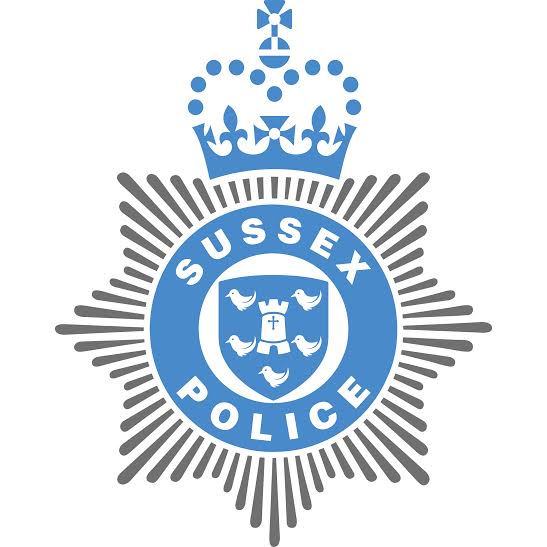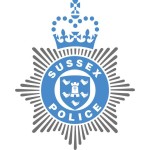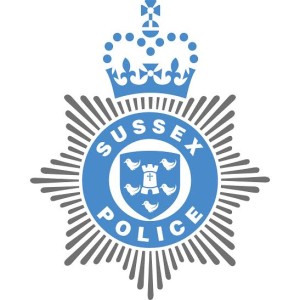Sussex Police has been criticised for handcuffing a mentally ill 11-year-old girl and using leg restraints and a spit hood on her.
Officers from the force also locked her in police cells overnight on two occasions in a matter of weeks and held her for more than 60 hours in total.
The Independent Police Complaints Commission (IPCC) has made a series of recommendations to Sussex Police as a result of five incidents involving the girl after her mother complained.
The recommendations deal with the restraint and detention of children and adults in police custody who are vulnerable and have a mental illness.
The IPCC said: “The recommendations follow an investigation into the force’s treatment of a girl with a severe developmental disorder on five occasions between (Thursday) 2 February and (Friday) 2 March 2012.
“The girl – who was 11 at the time of the incidents and is referred to as Child H to protect her identity – has a neurological disability which can cause challenging behaviour, with the potential to harm herself and others.
“Child H spent a total of more than 60 hours in police custody after being arrested three times for minor offences and on another occasion when she was detained under the Mental Health Act.
“The girl was held overnight in police cells twice. At the time of the incidents the girl’s neurological disability had not been diagnosed but the force was informed by her mother that she was believed to be suffering from an autism spectrum disorder.
“The IPCC found Sussex Police failed to ensure an appropriate adult – a parent, guardian or social worker – was present to support Child H in custody.
“Police were also found to have used handcuffs, leg restraints and spit hoods on Child H yet on a number of occasions did not record any rationale for their use of force.
“The investigation found these failings were in part due to Sussex Police’s training and force policy.
“Shortly after the IPCC investigation started Sussex Police took early steps to establish appropriate protocols with Child H’s family to ensure lessons were learned and changes implemented in any future dealings with her.”
The IPCC’s recommendations to the force include
- improved training on the use of force on children and adults with mental illness to ensure the use of force is avoided wherever possible
- additional training on detaining vulnerable people and the role of an appropriate adult
- ensuring officers are accountable for their use of force
IPCC commissioner Jennifer Izekor said: “This was a complex investigation which found Sussex Police officers failed to respond effectively to the needs of a vulnerable child.
“While it is clear Child H had significant behavioural problems arising from her disability, Sussex Police and indeed other agencies which were – or should have been – involved did not appear to have the skills and capacity to respond to her effectively.
“The IPCC understands it is not possible to train each and every frontline officer to recognise and understand the complexities of all emotional or behavioural issues.
“But it is important that officers responding to young people with mental health, emotional and behavioural difficulties have a basic understanding of their needs and how best to deal them.
“I was pleased that shortly after we began our investigation the force engaged with Child H’s family to establish appropriate protocols to ensure that lessons were learned and changes implemented in any future dealings with her.
“We welcome the changes Sussex Police has made to its training and processes since the start of our investigation.”
The watchdog added: “The IPCC’s view was that there was a case to answer for misconduct for six custody sergeants for failing to ensure an appropriate adult was present, one of whom also failed to transfer relevant information on to the risk assessment, another custody sergeant for failing to ensure that Child H was dealt with expediently while in custody and two police constables for their restraint of Child H in handcuffs.
“Conduct issues identified during the course of the investigation have been addressed by Sussex Police through management advice.
“Two further officers – a custody sergeant and an inspector – who in the IPCC’s view would have had a case to answer for misconduct for failing to ensure an appropriate adult was present have since retired.
“No further action was taken against a former front desk inquiry officer who the IPCC believed had a case to answer for misconduct for failing to treat Child H’s mother according to her needs, a call handler for failing to log sufficient information about Child H’s condition and against a police constable who, in the view of the investigator, had a case to answer for misconduct.”
The girl’s mother was represented by solicitor Gus Silverman from the law firm Irwin Mitchell.
He has previously won damages and an apology from Sussex Police on behalf of peaceful protesters who were arrested during an anti-austerity demonstration in Brighton.
Irwin Mitchell said: “The claimants received remedies including damages, a letter of apology, the destruction of their personal information retained by the police (fingerprints, DNA profiles and custody photographs) and an admission that officers acted unlawfully.”
Sussex Police Temporary Deputy Chief Constable Robin Smith said this morning (Wednesday 8 June): “We take our responsibility for any use of force very seriously particularly when it involves young people or those who are vulnerable.
“We welcome the IPCC’s scrutiny and during its investigation the force has adopted many schemes to support vulnerable people and those with mental illness, learning disabilities and substance misuse issues.
“Aspects of our approach are being held as good practice nationally and we will respond to any new learning identified in the IPCC’s report.
“A lot has been achieved to support people who are vulnerable. However, we cannot be complacent and will continue to work with partners to ensure that the right decisions are made in assessing and supporting those who need it.
“As a direct result of the investigation into this case, personal safety and first aid training, which all officers have to undertake, has been updated.
“This means officers have learned communication skills to help them be more effective when helping people with mental illness.
“In addition all officers have refreshed their knowledge in the use of spit guards.
“As a chief officer I have a duty to protect officers and the public when we are called on for help, whether the threat comes from a child or someone who is unwell.
“This is very often the case and it was on several occasions that the girl’s mother called for our help.
“The application of any type of restraint is considered only when the level of resistance causes concern for the safety of the detained person, the officer and other members of the public.”
Sussex Police said that people with a suspected mental illness, learning difficulties or substance misuse issues who were detained under section 136 of the Mental Health Act and who were under 18 years old should not be taken to the cells in Hollingbury “unless there are the most exceptional circumstances present”.
The force also pointed to its triage team – a dedicated officer and nurse – who respond to calls and ensure an appropriate response to their needs.
It said: “In Brighton and Hove officers work closely with the Mental Health Rapid Response Service who provide assistance and advice to officers who are dealing with someone in mental health crisis.
“The service also undertakes assessments and admissions where necessary into hospital.”











If they felt the need for those sorts of restraints it was either to protect her from herself, or she was being extremely violent towards the police officers or members of the public.
We do not have the full story here. We don’t know what her disability is, only that she is mentally ill and her Mother ‘believes’ she is ‘on the spectrum.’
Diagnosis for spectrum disorders can take years due to the often complex nature, she was 11 years old and it has been determined that there was a case for the police to answer to so until quicker diagnostic tests can be done, it is necessary to listen to parents. Whether the girl was violent or not, there are procedures in place which include having an adult present and seeking medical advice which were not complied with, many adults who were violent would not have been treated in this heavy handed manner and with a lot of the violent behaviours of children on the spectrum being routed in fear, this treatment would only have increased.
I agree with you
She has been diagnosed according to the article.
Amazing! Mental illness is of course a new phenomenon and those gentle caring policemen would never have come across anybody with mental illness before, or read about the countless similar cases. A case against three officers in Exeter where they are charged with killing a schizophrenic man by suffocation is on going, but lessons have positively not been least. In aviation, if there is an incident or accident it is reported and pilots take note, so as to avoid it happening to them. It is a shame the police do not approach their job in the same way. Maybe the difference is when a pilot kills his passengers he normally kill him self
* not been learnt.
What about the rights of people who don’t have a mental illness not to be harmed by those that do?
It sounds like this action was taken to prevent harm to others, or herself, so I fail to see why anyone has been reprimanded here.
At 11 a person is quite capable of harming another.
I agree Bill!! Easy for parents to blame the police but they have to protect themselves at the end of the day
There is no excuse for no Appropriate Adult being called under any circumstances.